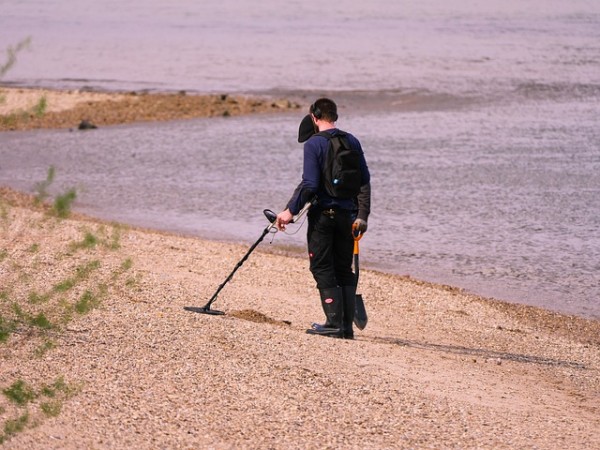Metal detectors are very helpful because they help you to discover hidden treasures from the electrical wirings to old coins and more. Nowadays, you will find many people sweeping over abandoned properties or private beaches looking for items of value. The process is straightforward as you only hit the metal detector on the object, and when it beeps a sound, then you dig it up.
Metal-detector technology is an important component in our lives as it has many uses, from safety to leisure and work. In modern airports, government agencies, office buildings, prisons, and even schools, people are inspected before entry to ensure they don’t carry any weapons inside. And for the consumer-oriented models, they have helped many hunters to find treasure from the metal junks.
What is a Metal Detector
For starters, note that the average metal detector contains only a few parts:
- Stabilizer – This is an optional part and keeps it steady while using it
- Shaft – The shaft connects the coil and the control box; usually, it’s made adjustable so that you can make it comfortable to suit your height.
- Control Box – This contains the controls, circuitry, batteries, microprocessor, and speaker.
- Search Coil – This is the part that senses the metal and can also be referred to as a search head.
Most metal detectors also have a jack, while others have a small display unit. You can connect your headphones with this jack and listen to the sounds generated by the device.
How Does a Metal Detector Work?
Metal detectors have a simple operation mode: when you put them on the ground, they transmit electromagnetic fields, and if there are metal objects within this electromagnetic field range, they will get energized, reproduce the electromagnetic field, and re-transmits it.
The metal detector will receive this field from the object and alert you with a sound. Since the metals can only reproduce these fields, you will know there is a metal beneath. Some modern metal detectors are set to detect some types of metals and ignore unwanted ones.
Different Types of Metal Detectors
Most hobbyists looking for buried treasures usually prefer a portable metal detector to sweep a beach or field. Some detectors contain smaller pinpoints used when examining positive samples. You will find many metal detectors held by hand and operate on the same principle as the larger models. However, they are used for light tasks such as looking for plumbing studs and electrical wiring.
You should get some digital tools and good headphones as they are helpful when searching for metals. And if you want to look for treasure inside a lake or ocean, I will recommend the waterproof metal detector models.
Where to Look for Treasures
Most treasure hunters prefer public beaches because they can easily be accessed, and they have the potential for many valuables. Besides the beaches, fairgrounds and parks are nice spots because they have a long history. You can also target the abandoned properties such as battlefields, schools, and hospitals. At times, homeowners may hire you to scan their property for valuables at a fee, but you will not remove or sell it.
Law and Metal Detection
Though being an owner of a metal detector is legal, you may have some restrictions on how, when, and where to use it. You have to seek permission from private property owners to search their premises, but it will be upon them to limit you on what you can do with the findings.
Also, there are some areas banned by the government from metal and treasure hunters. Though you can be permitted to search these areas, you may not be allowed to take anything from the site. Therefore, you need to research whether the area you plan to use is allowed for treasure hunting.
Most Popular Metal Detector Activities
Metal detecting is a popular hobby, and its popular activities are:
- Treasure Hunting – You are looking for gold caches and other valuable materials suspected to be lying somewhere.
- Coin Shooting – Looking for the old coins and especially after an event
- Prospecting – Looking for valuable metals
- Relic Hunting – Looking for items that bear historical value
Bottom-line
Metal detectors are some of the most useful devices in this century. They help hobbyists to find hidden metals, coins, and other items of historical value. And with the advancement of technology, they are becoming even better and can be set to ignore unwanted targets.

